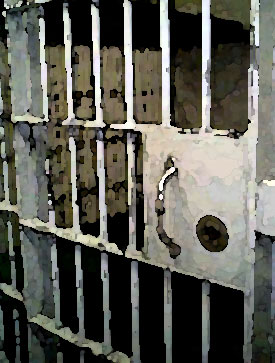This post was also presented on Matrix.

In one of the more poorly thought out layers of legislation being proposed in Congress to help the housing market and credit problems pertains to the appraisal element within the Homeownership Preservation and Protection Act of 2007. This bill is being championed by US Senator Dodd. The whole concept of bonding the appraiser demonstrates a lack of understanding of how we fit into the lending process.
I’ve touched on this legislation in a previous post about how the act misses the mark because it provides no tangible solution to the appraisal element of the mortgage lending process (emphasis added: no). The legislation seems to be stuck at the moment but I am not so sure how long that will last.
Because I am familiar with the topic (it’s my profession), it really scares me to think of the thousands of pieces of legislation that are crafted in bills by Congress every year that are probably just like this one. I am sure Senator Dodd’s intentions are honorable, but the bill completely misses the issue at hand.
A key concern brought up by this bill is the cost of bonding an appraiser. As if obtaining a bond makes an appraiser suddenly ethical and/or not subject to intensive, economically incentivised pressure?
Since I have never had to obtain a bond, I am not completely confident of my thinking here, but I suspect I am on the right track:
The Dodd legislation says:
>Appraisers must obtain bonds equal to one percent of the value of the homes appraised.
Ok, so if I say Miller Samuel appraises $5,000,000,000 worth of Manhattan real estate in a year, that amounts to a $50,000,000 bond (1%).
I couldn’t find any published quotes for appraisal surety bonds, but if we say the cost is 2% of face value of the bond, then $50,000,000 x 2% = $1,000,000. In other words, our firm will need to spend $1,000,000 this year in order to comply with legislation that does nothing to address the problem (insulating appraisers from pressure).
Issue 1: If appraisers wish to remain in business, they will have to pass along the costs to their clients (ultimately the consumer in most cases). Common sense says that most appraisers will be forced out of business or no longer perform appraisals for lenders if this interpretation is correct.
This means I have to pass costs of $1,000,000 to my clients (appraising is a razor thin margin business). That really means I am going to have to raise my fees many times just to break even and I am doubtful that my client base will readily absorb the significant increase in fees. As I mentioned in the prior post, I think this will actually make more good appraisers leave the profession.
Issue 2: Appraisers may have to obtain these bonds individually, not in lump sum as in the example above. Try doing this thousands of times in the course of a year. Additional staffing costs, paper work and time has costs associated with it. Total it up and the bill makes appraisals cost prohibitive and will lengthen the appraisal process.
Issue 3: Appraisers may have to violate their appraisal license when obtaining the bond for each assignment. In order to get mandated coverage, they have to provide the value before doing the appraisal (it’s called “cart before the horse”), a direct violation of the licensing law mandated by Congress in 1989 via FIRREA/USPAP. I would think the appraiser’s value estimate for the bond would error on the high side to make sure the property is covered, adding even more costs.
Admittedly I am not familiar with the cost and process of obtaining a bond so I would welcome feedback and insight on this. I am amazed how little information exists out there. Nothing of significance has been written about bonding appraisers that I am aware of.
Appraising is my profession. Lack of common sense is now my bond.
UPDATE: I have been told that the cost of the bond is based on the prior year’s valuation.
2 Comments
Comments are closed.


The root of the bonding idea is stuck in the bad idea that appraisers are the market value police and somehow if they know what they are doing and do it right an appraised value will be within 10% of something called “true market value. Change that and appraisers can go back to appraising and learning to appraise better.
Hopefully, It will be stuck for longer than a moment due to all the scrutiny of Dodd’s sweetheart deal with Countrywide.